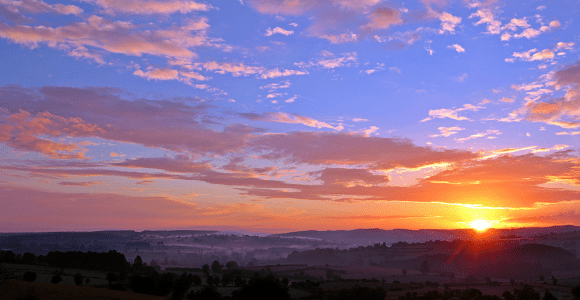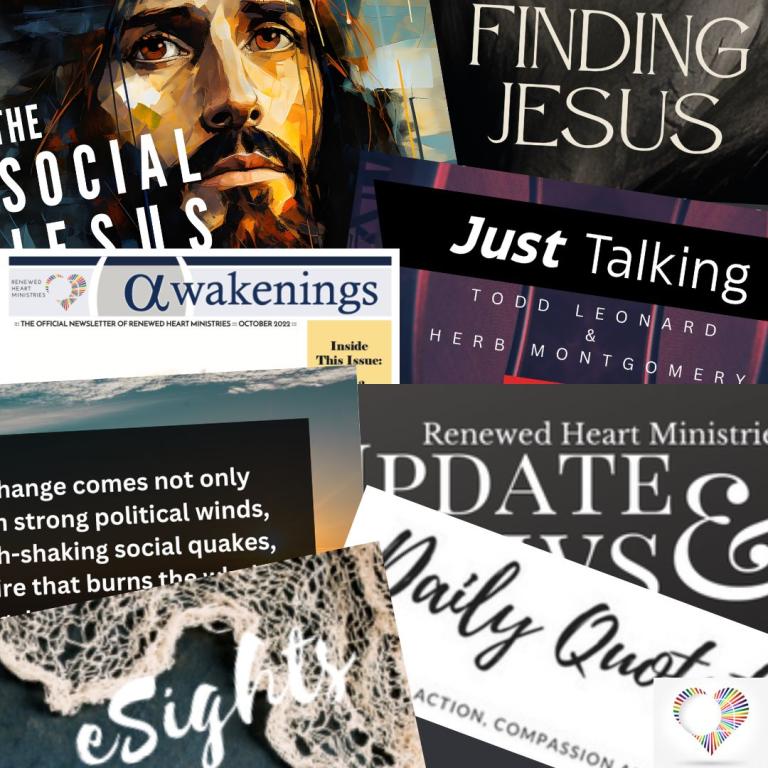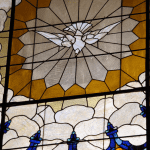
Our gospel reading this coming weekend is from the gospel of Mark:
One Sabbath Jesus was going through the grainfields, and as his disciples walked along, they began to pick some heads of grain. The Pharisees said to him, “Look, why are they doing what is unlawful on the Sabbath?”
Welcome Readers! Please subscribe to Social Jesus Here.
He answered, “Have you never read what David did when he and his companions were hungry and in need? In the days of Abiathar the high priest, he entered the house of God and ate the consecrated bread, which is lawful only for priests to eat. And he also gave some to his companions.”
Then he said to them, “The Sabbath was made for humanity, not humanity for the Sabbath. So the Son of Man is Sovereign even of the Sabbath.”
Another time Jesus went into the synagogue, and a man with a shriveled hand was there. Some of them were looking for a reason to accuse Jesus, so they watched him closely to see if he would heal him on the Sabbath. Jesus said to the man with the shriveled hand, “Stand up in front of everyone.”
Then Jesus asked them, “Which is lawful on the Sabbath: to do good or to do evil, to save life or to kill?” But they remained silent.
He looked around at them in anger and, deeply distressed at their stubborn hearts, said to the man, “Stretch out your hand.” He stretched it out, and his hand was completely restored. Then the Pharisees went out and began to plot with the Herodians how they might kill Jesus. (Mark 2:23-3:6)
Both stories in this week’s reading revolve around how the Sabbath was practiced in Jesus’ society. These stories also have deep social justice lessons for us today. Let’s begin with the Sabbath commandment in Exodus:
“Remember the Sabbath day by keeping it holy. Six days you shall labor and do all your work, but the seventh day is a sabbath to your Sovereign God. On it you shall not do any work, neither you, nor your son or daughter, nor your male or female servant, nor your animals, nor any foreigner residing in your towns. For in six days your Sovereign made the heavens and the earth, the sea, and all that is in them, but he rested on the seventh day. Therefore your Sovereign blessed the Sabbath day and made it holy. (Exodus 20:8-11)
This passage begins with the word “remember.” The people in the story had been recently liberated from slavery in Egypt, and one of the very first lessons they learned in their wilderness travels was the Sabbath (Exodus 16). The text in Exodus 20 is reminding them of the lessons they had just learned and instructing them to not forget.
For our purposes, these Sabbath lessons were social justice lessons. They were about labor justice. Everyone was entitled to time to rest and be restored. No one was to be forced to labor unceasingly. To put this in language that we might understand today, the Sabbath was a command directed toward employers, not employees. Employers were to remember that they were once slaves in Egypt. I do wish that the passage admonished them not to even have slaves because they knew what it was like themselves to be slaves. But instead it admonishes them make sure they give their labor force time off (“your son or daughter, nor your male or female servant, nor your animals, nor any foreigner residing in your towns”). It reminds them that they knew what it was like to be slaves.
This brings to mind the historical accomplishments of labor movements and labor unions in our society today. We’ll unpack these accomplishments and their relation to the Sabbath in the gospels and our work toward social justice today, next.
(Read Part 2)

Are you receiving all of RHM’s free resources each week?
Begin each day being inspired toward love, compassion, justice and action. Free.
Sign up at:
https://renewedheartministries.com/Contact-forms/?form=EmailSignUp














